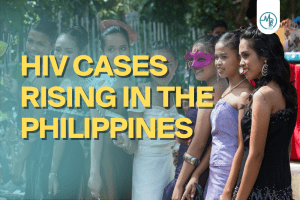Bipolar disorder, a mental health condition that affects millions of people worldwide, is characterised by extreme mood swings, from episodes of high energy and elation to periods of depression and hopelessness.
Although it can be a challenging condition to manage, with the right treatment, people with bipolar disorder can lead successful and fulfilling lives. In honour of World Bipolar Day, let’s take a look at 5 famous individuals who have achieved great things while living with bipolar disorder.
Carrie Fisher
Carrie Fisher is best known for her iconic role as Princess Leia in the Star Wars franchise. In addition, Fisher was a prolific writer, actor, and mental health advocate. She openly discussed her struggles with bipolar disorder and addiction, using her platform to raise awareness about mental health issues. Despite her battles, Fisher wrote several best-selling books, including “Wishful Drinking” and “The Princess Diarist,” and continued to act in films and television shows until her death in 2016.
Robert Downey Jr
From his early days as a member of the “Brat Pack” to his current status as one of Hollywood’s most bankable stars, Downey Jr. has had a long and storied career. But his success has not come without its challenges. Downey Jr. has struggled with addiction and bipolar disorder, but has spoken openly about his experiences and how he has managed to overcome them. He credits his wife, Susan, and his commitment to therapy and meditation with helping him to maintain his mental health.
Eason Chan

One of Hong Kong’s most popular singers and actors, Chan has been open about his struggles with bipolar disorder. He has spoken about how his diagnosis has helped him to understand himself better and to manage his moods more effectively. Despite his condition, Chan has continued to produce chart-topping albums and star in critically acclaimed films.
Yo Yo Honey Singh
A prominent Indian rapper and music producer, Singh has spoken openly about his struggles with bipolar disorder and alcoholism. He has said that seeking help and treatment was one of the best decisions he ever made. Consequently, it has helped him to become a better artist and a better person. Singh’s music has won numerous awards and accolades. Since then, he continues to be a major force in the Indian music industry.
Jang Keun-suk
Jang Keun-Suk is a popular Korean actor and singer. Previously, he has spoken about his bipolar disorder diagnosis. He also shared how he learned to manage his condition through therapy and medication. Despite the challenges he has faced, Jang has continued to work in the entertainment industry. He has amassed a devoted fanbase around the world. He has also been involved in various philanthropic efforts, using his fame to help those in need.
Asians At Higher Risk
It is important to note that bipolar disorder affects people of all races and ethnicities. However, research has shown that Asian people are more likely to develop bipolar disorder than Caucasians. One study found that Asian and Latino patients had a significantly higher prevalence of bipolar I disorder than Caucasians. While the reasons for this disparity are not fully understood, it is clear that mental health issues affect all communities and that it is important to seek help and support when needed. In addition, social stigma is more prevalent in Asia. Therefore, more Asians are not diagnosed with the condition.
In conclusion, the stories of these five individuals demonstrate that a diagnosis of bipolar disorder need not be a barrier to success. By seeking treatment, building a support system, and finding healthy ways to manage their condition, they have been able to achieve their goals and make a positive impact on the world. Let us use their examples as inspiration to continue to break down the stigma surrounding mental health issues and to support those who are living with bipolar disorder.













